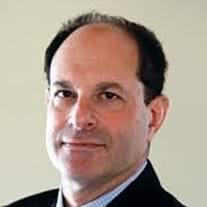A Molecular Approach to New Pain Drugs
The Innovators in Science Award Honorees are Breaking New Ground in Neuroscience: Dr. David Julius takes a molecular approach to explore compound structures.
Published May 1, 2018
By Anni Griswold
NYAS Contributor
Albert Einstein reportedly once said, “Not everything that can be counted counts, and not everything that counts can be counted.” Though the 2017 honorees of the Innovators in Science Award have plenty of countable achievements, their stories reveal a common thread — creative approaches to their work and the development of disruptive tools that transformed scientific understanding in their discipline.
Pain Relief Begins with Basic Science

In a field as urgent and divisive as pain control, the race to market new drugs often overshadows a slower yet essential expedition: curiosity-driven science. But in David Julius’ lab at the University of California, San Francisco, curiosity has always been king.
As a graduate student in the early 1980s, Julius, a Senior Scientist Finalist, became fascinated with neurotransmitter systems. He read every paper he could find about the effects of psychoactive drugs on the nervous system. This included works by Timothy Leary and Sol Snyder. Eventually his curiosity led him to clone the serotonin receptor, a groundbreaking feat that introduced molecular biology into the field of pain research, long dominated by physiologists, pharmacologists and psychologists.
In the years since, he has taken a molecular approach to explore how plant-derived products such as capsaicin from chili peppers and menthol from mint leaves “tickle the pain pathway.” His findings have shed light on various pain receptors in the brain and uncovered ion channels that regulate sensory neurons in response to thermal or chemical stimuli.
“If any of these lead to a new pain drug, I’ll be incredibly gratified by that,” says Julius, PhD, a professor of physiology. “But in the end, these [new drugs] arise from asking basic questions about somatosensation and pain. It’s important to keep that in mind, because you never know when a basic discovery will transform an area.”
Read more about Innovators in Science Award Honorees:
- Ben Barres: The Innovators In Science Award Honorees Are Breaking New Ground In Neuroscience
- Michael Halassa: The Innovators In Science Award Honorees Are Breaking New Ground In Neuroscience
- Viviana Gradinaru: The Innovators In Science Award Honorees Are Breaking New Ground In Neuroscience
- Shigetada Nakanishi: The Innovators In Science Award Honorees Are Breaking New Ground In Neuroscience
- Kay Tye: The Innovators In Science Award Honorees Are Breaking New Ground In Neuroscience
